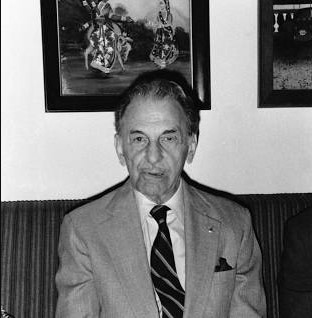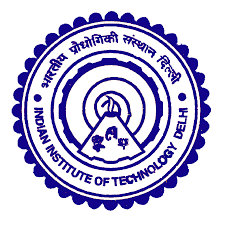'Adipurush' Writer "Accepts Mistake", Extends "Unc
June 13, 2025

Jehangir Ratanji Dadabhoy Tata, also known as JRD Tata, was born in France to an Indian businessman and one of the wealthiest families in India. His mother was French, so he spent most of his childhood in France. French was his first language.
During a childhood summer vacation, he met aviation pioneer Sir Louis Bleriot. This meeting triggered his interest in aircraft and flying, which became his longtime passion and stayed with him forever. JRD Tata intended to pursue an engineering degree at the University of Cambridge in the UK, but returned to India to carry forward his role in the Tata family’s business.
JRD Tata was born on 29 July 1904 to Indian businessman Ratanji Dadabhoy Tata. As his mother was French, JRD Tata spent much of his time in France.
JRD Tata was educated in London, Japan, France and Mumbai. After the death of his wife, Ratanji Dadabhoy moved his family to India and sent JRD Tata to England for higher studies. However, being a citizen of France, JRD Tata had to enlist in the French army for at least a year. He spent a brief period at home in Bombay in between attending school and working with the army.
In 1929, JRD Tata renounced his French citizenship and became an Indian citizen. He later joined the Tata family business. In 1930, JRD Tata married Thelma Vicaji, his lawyer whom he hired to defend himself on charges of driving a car too fast on a Bombay road.
JRD Tata was the first person in India to own a flying licence. He was certified on 10 February 1929, and became known as the father of Indian civil aviation. JRD Tata founded India’s first commercial airline, Tata Airlines, in 1932, which subsequently became known as Air India.
In 1929, JRD Tata received a commercial pilot licence. In 1932, Tata Airlines took to the sky. In that year, JRD Tata flew his first commercial flight. The first flight in Indian history flew from Drigh in Karachi to Madras under JRD Tata.
In 1938, JRD Tata was elected the chairman of Tata Sons, making him the head of the biggest industrial group in India. He took over the chairmanship of the company from his second cousin. For years, JRD Tata directed the Tata group of companies. His major interests lay in steel, engineering, power, chemicals and hospitality. JRD Tata became famous and succeeded in life and business because of his business acumen and high ethical standards.
Under the leadership of JRD Tata, the assets of the Tata group grew from $100m to $5bn. Under his guidance, the Tata group trust established Asia’s first cancer centre, the Tata Memorial Centre of Cancer, for research and treatment in Bombay in 1941. In 1945, JRD Tata established Tata Motors. In 1948, he launched the first international airline in India.
JRD Tata also contributed to the field of education; in 1936, he founded the Tata Institute of Social Sciences (TISS). In 1945, the Tata Institute of Fundamental Research (TIFR) and the National Centre of Performing Arts were set up.
In 1968, JRD Tata established Tata Consultancy Services as a Tata computer centre. In 1987, Titan Industries was formed.
JRD Tata received many awards throughout his lifetime. He was regarded with great respect, awarded the rank of group captain by the Indian Air Force in 1948, and was promoted to Air Commodore in 1966. JRD Tata was awarded the highest civilian award, the Bharat Ratna, in 1992.
The Tata family tree started with Jamsetji Naussurwanji Tata. In 1904, after Jamsetji’s death, his two sons, Dorabji and Ratanji, and cousin RD Tata, merged and formed the modern-day Tata Sons.
In 1926, RD Tata passed away and left his entire estate and debts to his eldest son, JRD Tata. JRD Tata divided the shareholding equally with his siblings Sylla, Darab, Jimmy and Rodabeh. In 1932, Darab died and left 40% of the ownership of Tata Sons to the Sir Dorabji Tata Trust.
In 1938, JRD Tata ascended to the top post of Tata Sons. After his death in 1991, Ratan Tata took over as the chairman of Tata Sons, and is still chairman to date.
After JRD Tata’s death, Ratan Tata was made the chairman of Tata Sons. An industrialist and philanthropist, Ratan Tata and JRD Tata are from different family branches. JRD Tata was like a father and a brother to Ratan Tata. JRD Tata adopted Ratan Tata as a son from a relative of his.
Jehangir Ratanji Dadabhoy Tata was born into a wealthy Indian family, and his mother was French. He spent most of his childhood in France, where he met an aviation pioneer who inspired his passion for aviation. Later on, JRD Tata became the first person in India to receive an aviation licence. He established the first airline in India under the name Tata Airlines. He also founded the first international airline in India. In 1945, JRD Tata established Tata Motors. He also received the rank of group captain from the Indian Air Force. After the death of JRD Tata, Ratan Tata was made the chairman of the Tata group of industries.

June 13, 2025

June 13, 2025

June 13, 2025

June 13, 2025

June 13, 2025

June 13, 2025

June 13, 2025

June 13, 2025

June 13, 2025

June 13, 2025